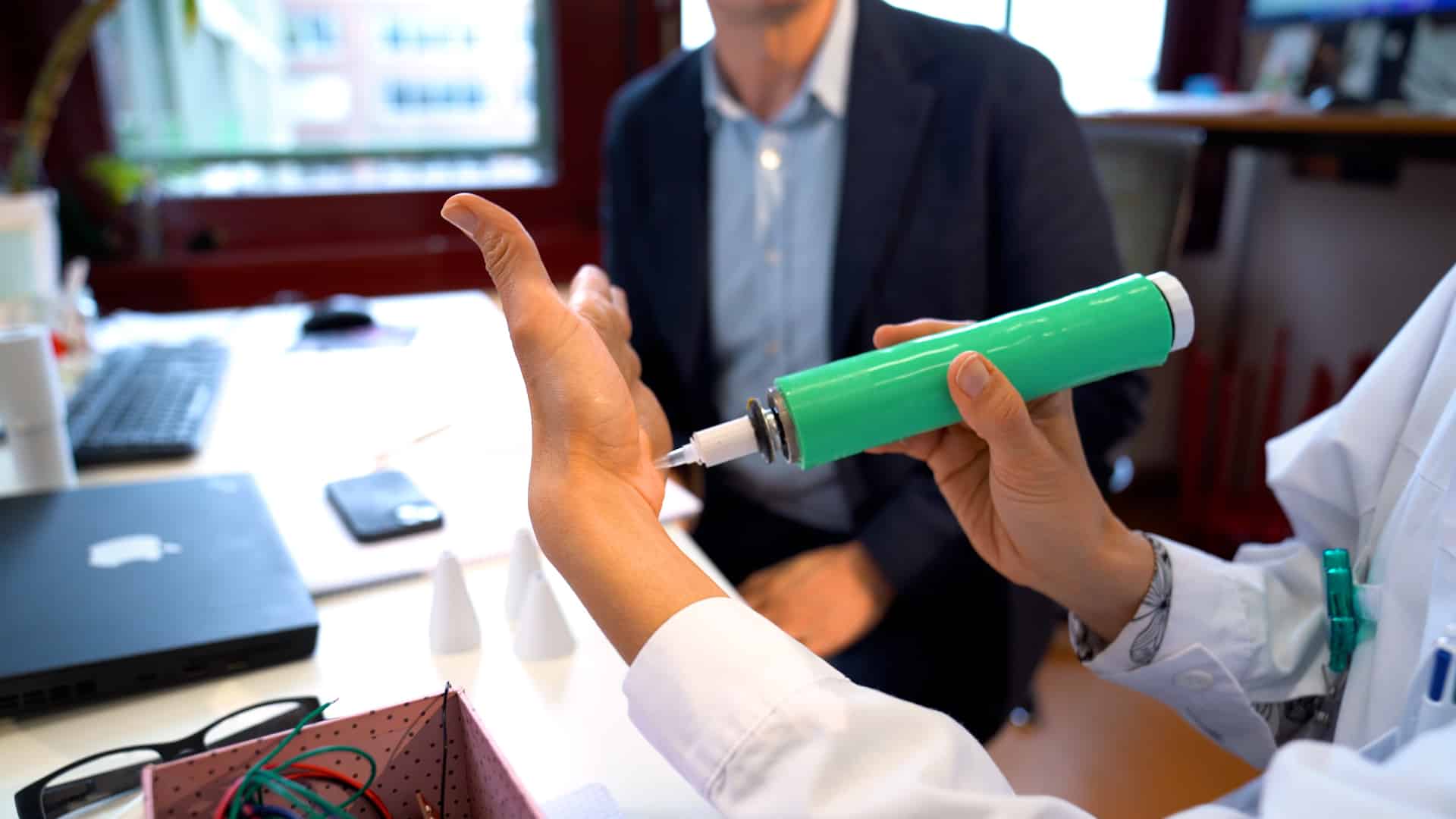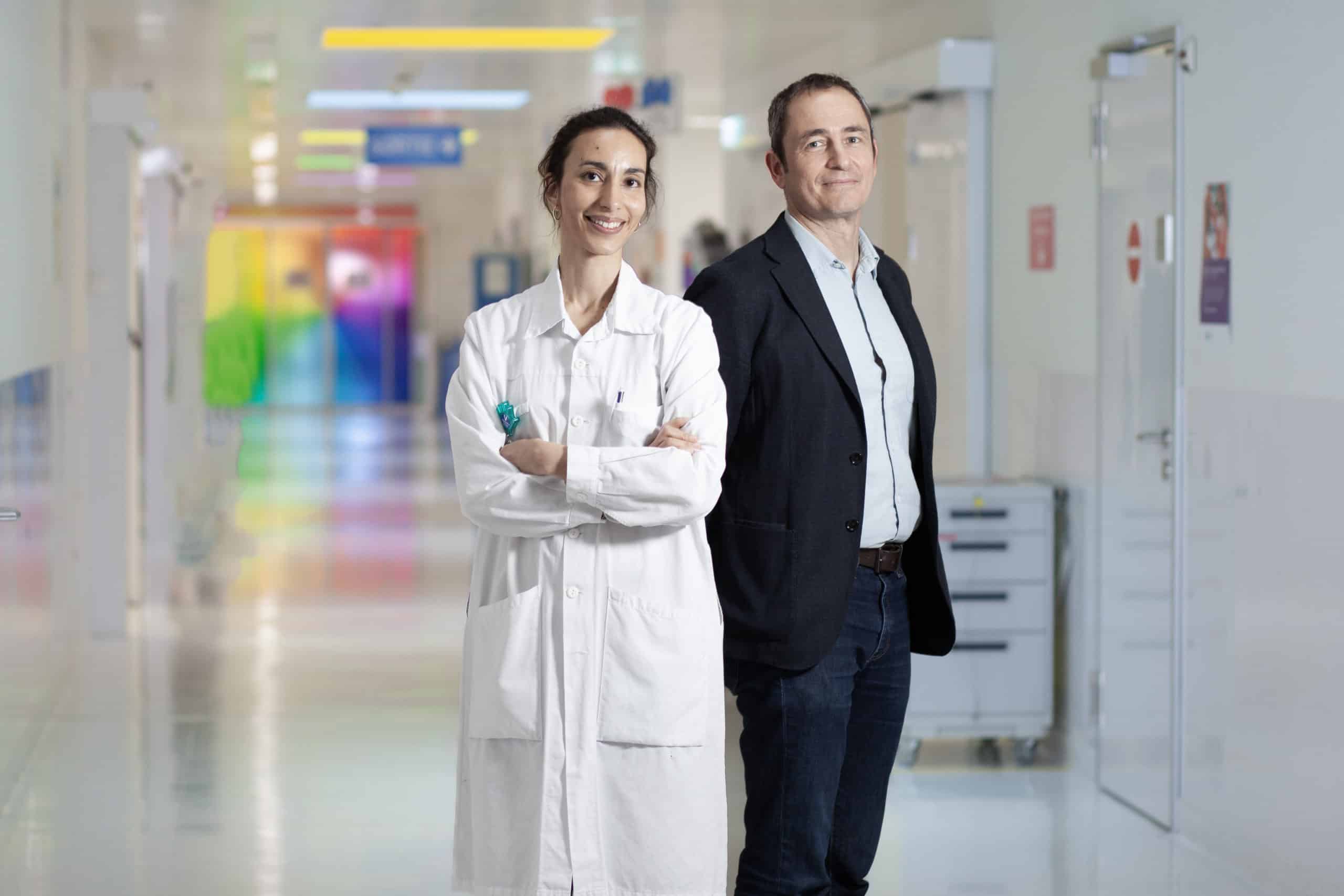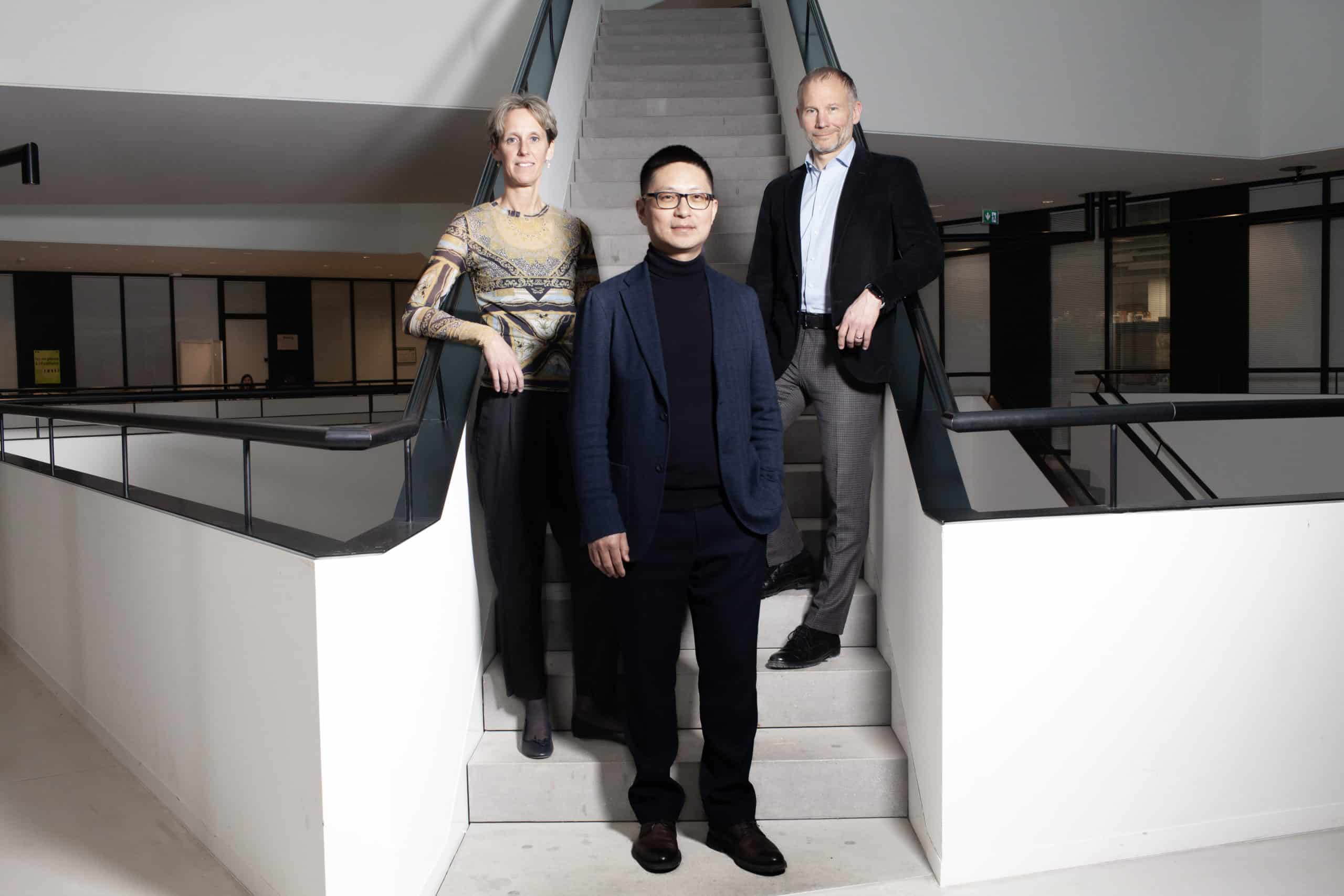Innovative device for measuring female genital sensitivity can improve the treatment of women who have experienced genital mutilation
Female genital mutilation (FGM) is a major public-health issue affecting 230 million women and girls worldwide, including 600,000 in Europe and 24,600 in Switzerland. Depending on the type, FGM refers to the partial or total removal of the visible part of the clitoris with or without the inner and outer labia, or to infibulation, which is the closure of the vulva. FGM violates women’s and girls’ bodily integrity and can seriously impact their physical, psychological and sexual health. Dr. Abdulcadir’s research group at the HUG’s Division of Gynecology is taking a cross-disciplinary approach to this issue, with the goal of better understanding and evaluating female genital sensitivity and thus improving the clinical, surgical and psychosexual treatment of patients. Dr. Abdulcadir is one of the few gynecologists in Switzerland who has been trained on the specific sociological, cultural, medical and surgical implications of FGM. She heads this research group in conjunction with Prof. Daniel Huber from the Department of Basic Neuroscience at the University of Geneva.
“Our system will give doctors objective measurements of female genital sensitivity for the first time, which will be especially useful for patients who have suffered mutilation or will undergo reconstruction,” says Prof. Huber. This research addresses a topic that is still widely taboo and aims to fill a major knowledge gap in public health. The new device will measure sensitivity through the use of calibrated tactile stimulation. “It will be small, portable and connected so that women can measure the sensitivity of their vulva and clitoris privately at home, without the need for invasive and uncomfortable clinical exams” says Prof. Huber. The device will mark a major step forward in both the understanding and treatment of genital sensitivity disorders after FGM and for other women, too. For example, it can give doctors insight into how body perceptions influence the psychosexual response.
Although many people today are better informed about the clitoris, there is still a striking lack of knowledge and widespread taboos. “Nearly 50% of the patients who consult our FGM clinic for undergoing clitoral reconstruction surgery end up changing their mind after the medical treatment and psycho-sexual care we provide,” says Dr. Abdulcadir. “With such care, they realize that their organ, while altered, can still be functional.”
➡️ LEARN MORE
The research team is led by Dr. Jasmine Abdulcadir (HUG, left) with Prof. Daniel Huber (UNIGE, right) © Alban Kakulya
Scientists explore how stiffer cancer-cell membranes can help in the fight against immunotherapy resistance
A team of scientists is exploring a new strategy for overcoming the limitations of immunotherapy and improving the effectiveness of this form of cancer treatment. “Our approach targets the mechanical properties of cancer cells by making their membranes stiffer, which improves the ability of T-cells to attach to the cancer cells and destroy them”, says Prof. Li Tang from EPFL’s Laboratory of Biomaterials for Immunoengineering. “This could pave the way to more effective treatments for patients who are currently immunotherapy resistant.” He heads this research group alongside Prof. Camilla Jandus from the Department of Pathology and Immunology at the University of Geneva’s Faculty of Medicine (UNIGE) and Prof. Olivier Michielin, chief of oncology at HUG.
Immunotherapy is a form of cancer treatment that involves boosting the capacity of a patient’s own immune system to recognize and destroy cancer cells. Unlike conventional treatments such as chemotherapy and radiotherapy that target cancer cells directly, immunotherapy works by stimulating a patient’s natural defenses. However, cancer cells have developed strategies for avoiding detection by patients’ immune systems, which limits the efficacy of existing immunotherapies. This type of treatment is currently effective for only a few kinds of cancer.
Until now, cancer research has focused mainly on drug treatments and biological therapies that target immune checkpoints, or the mechanisms that cancer cells use to block T-cell attacks. “Significantly more research is needed in certain areas, such as to investigate the physical properties of cancer cells and how these properties influence immunotherapy outcomes,” says Prof. Tang.
“By eliminating the ‘soft’ property of cancer-cell membranes, we can remove the shield that protects these cells from immune-system attacks”, says Prof. Jandus. “This alteration to cancer cells’ mechanical properties enables T-cells to bind to tumors and inject a cytotoxic agent that destroys them.” Scientists at Prof. Tang’s laboratory have recently found that membrane plasticity, which is a measure of how soft cancer cells are, plays a key role in immunotherapy resistance. The soft membranes make it impossible for T-cells – the guardians of our immune system – to attach to and destroy them. Prof. Tang’s research group aims to take advantage of the mechanical vulnerability offered by rigid membranes to open up new therapeutic horizons.
The research team is led by Pr. Li Tang (EPFL, in the middle), with Pr. Camilla Jandus (UNIGE, left) and with Pr. Olivier Michielin (HUG, right) © Alban Kakulya
About the Leenaards Science Prize
The Leenaards Prize for Translational Biomedical Research is awarded every year to between one and three research projects that bring together researchers from at least two different universities or teaching hospitals in the Lake Geneva region, a group comprising the CHUV, the University of Lausanne (UNIL), the Unisanté university healthcare center, Geneva University Hospitals (HUG), the University of Geneva (UNIGE) and EPFL. Projects are selected because they use cutting-edge research to address a clinical problem in an innovative way. This prize also supports translational research projects that combine fundamental and clinical research in order to transform scientific discoveries into medical treatments.
Projects that pass the initial jury selection stage are peer-reviewed by a panel of international experts. This 2024 call for proposals attracted 16 applications from research groups across the six eligible institutions. For independence reasons, the majority of jury members are affiliated with institutions outside the Lake Geneva region. The jury is chaired by François Verrey, Professor Emeritus of Physiology at the University of Zurich.
For more information
Please contact Adrienne Prudente, the head of communications at the Leenaards Foundation, to arrange interviews with the prize winners, the event speaker or representatives of the Leenaards Foundation.
+41 (0)21 351 25 55
communication@leenaards.ch
Documents for the press: www.leenaards.ch/presse




